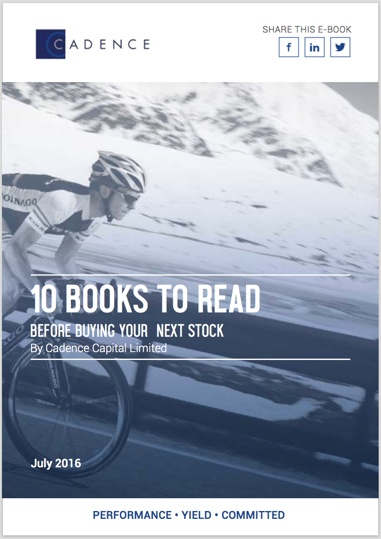
This article by Karl Siegling was published in the ASX Newsletter, July 2015
Divestments – benefiting from a spin-off
For simplicity purposes businesses are often referred to as a start-up, an early stage fast growing business, an established and cash generating business and finally as a mature business being milked for cash and then a business in decline.
These business cycles can be very long, or as we are observing in the modern disruptive business world, these business cycles are speeding up and compressing in time.
Along this business continuum businesses may access early stage capital in the form of private equity or venture capital, list on the stock exchange to access capital to feed a growing business or list on the stock exchange once a business is mature so that owners can effectively ‘cash out’ of a business whilst new investors can ‘milk the business’ for cash.
When we talk about divestments each of these scenarios is possible and there is not a ‘one size fits all’ explanation.
Divestments can be early stage ventures, fast growing and require cash, mature and cash generative or in decline. Interestingly, the modern listed corporate entity is often a place you will find businesses all under ‘one roof’ that are at different stages in the business cycle. These businesses tend to be big established corporations.
Generally speaking the market has great difficulty valuing businesses at different stages in the business cycle all ‘housed under one roof’. In fact, it can be quite difficult to estimate where a particular industry or stock is positioned in a business cycle even if the corporation is only operating in one business.
Divestments more popular
Divestments have become a common phenomenon of the current market. Otherwise called ‘spin-offs’ we have seen Orora spin off from Orica, part of Sydney Airports spin off from Macquarie, Recall spin off from Brambles and South 32 spin off from BHP.
This phenomenon is not restricted to any peculiarity of the Australian market either. Mooted overseas spin-offs that come to mind are the non-core spin off of assets out of Bayer Group in Germany, and the spin-off of PayPal out of eBay just to name a few.
Spin-offs or divestments generally perform very well for the reasons outlined in our August 2014 article ‘The Case for Corporate Spin-offs’.
Why divestments are attractive
In summary, directors and management are well incentivised and interests are aligned to make spin-offs successful. However, when we start to make general statements there are always exceptions, and assessing at what stage of the business cycle a particular stock is, can help to assess both the company being spun out and the company doing the spin out.
In the case of Recall it was generally accepted that Recall was a reasonably high quality business with good stable cash flows and a stable and mature market position. The real question for Brambles management was ‘where to from here?’
It was generally felt that Recall was not getting the multiple it deserved within the Brambles structure. As soon as Recall was spun off its share price started to go up and its earnings multiple increased reflecting the quality of the business.
No doubt Brambles Board and management considered the fact that having Recall separately listed would also allow a potential acquirer to bid for the business and consolidate the industry. This is in fact what has happened and Recall is currently being bid for by Iron Mountain out of the USA. Apart from Recall trading on higher multiples, spinning out the asset has allowed a pricing mechanism or ‘bidding process’ to evolve to maximise the value of a Recall exit. This may not have been possible had Brambles attempted to sell Recall in a trade sale.
Sydney Airports has grown and become a reasonably mature business under Macquarie’s stewardship and the share price has more than doubled since Macquarie spun out its remaining shareholding. Again, there has been an earnings multiple rerating of the stock and there is ongoing debate that Sydney Airports will one day be bid for by a major infrastructure investor.
Meanwhile, Macquarie has taken the proceeds from the Sydney Airport sale and no doubt invested the funds into businesses at an earlier, more lucrative stage in the business cycle, thus ‘recycling’ investments.
Carl Icahn, the famous US activist, is currently pushing hard for eBay to spin off PayPal. His simplified argument is that the two businesses are at different stages in the business cycle with eBay being more mature and requiring less cash, and PayPal having significant growth ahead of it, and requiring significant amounts of strategic investment. The general premise is that separating the two businesses would allow PayPal to rerate and ‘run its own race’. The impetus to spin off PayPal is gathering momentum and could deliver a win-win for investors and management alike. EBay Board and Management are to be commended for having nurtured not only one highly successful business but two in a relatively short space of time.
South 32 spin-off
The South 32 spin off-out of BHP does not fit easily into the above analysis. In simple terms BHP divested a number of smaller resource companies under the South 32 banner as they were taking up a disproportionate amount of management time within BHP. The underlying commodities that these companies mine are themselves cyclical and it was generally thought that the South 32 assets were mining commodities that were performing poorly relative to some of BHP’s larger operations.
However, everything is relative and, commodities in general, have performed poorly and the companies that mine those commodities have been performing even worse. We would argue that the ideal time to own a resource company is when commodity prices are going up and you definitely don’t want to own a resource company when commodity prices are going down….it is irrelevant whether it is being spun out or not. Whilst the reasons for spinning off South 32 may be compelling from BHP’s point of view, they don’t appear that compelling from an investor’s perspective.
Summary
As can be seen from a sample of spin-offs above, there is a general rule of thumb that divestments tend to do well, or at least the starting point for considering any divestment, is that the board and management of a company must believe that the divestment will add value otherwise they would not recommend it.
However even accepting this general rule, it is important to understand why the divestment is being proposed and at what stage in the business cycle a particular divestment Company is in, to finally determine whether the motives for the divestment are sound.
In a period of low interest rates and lower overall equity returns, we can expect to see more divestments and, potentially more Merger and Acquisition activity as a result of divestments, as Board and Management of listed entities look for ways to improve overall shareholder return.
Written by Karl Siegling, July 2015

